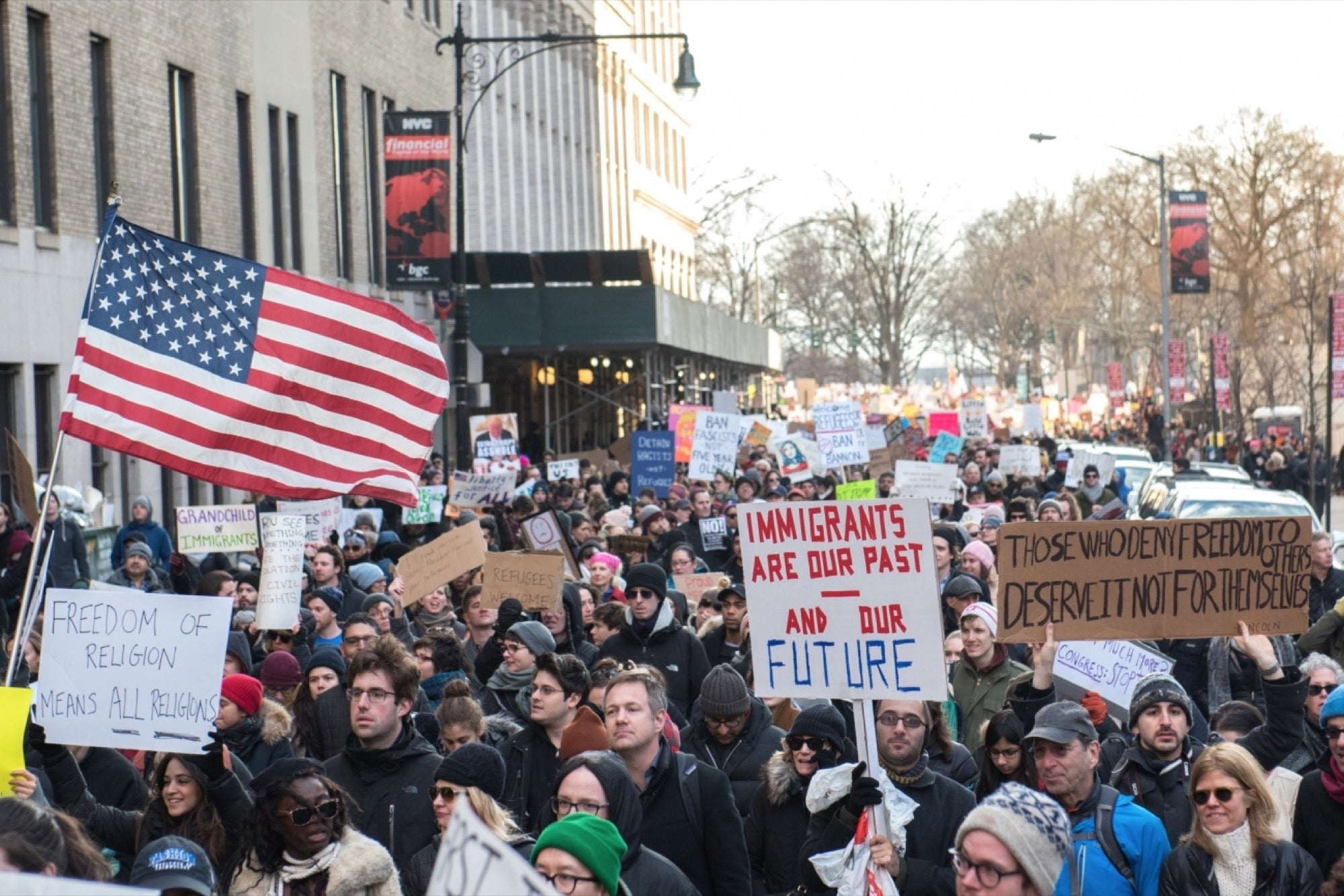3 Ways Entrepreneurs Can Protect Employees From Trump's Immigration Executive Order If a member of your team from one of the seven Muslim-majority nations leaves the US, you can no longer assume their visa will get them back in.
By Jonathan Segal Edited by Dan Bova
Opinions expressed by Entrepreneur contributors are their own.

On Friday, President Trump issued an executive order that:
- Suspends entry of all refugees to the United States for 120 days;
- Bars Syrian refugees indefinitely; and
- Blocks entry into the United States for 90 days for citizens of seven predominantly Muslim countries. The countries are: Iran, Iraq, Libya, Somalia, Sudan, Syria and Yemen
Four federal judges have blocked implementation of at least parts of the Executive Order. Even so, it appears the Administration will continue to enforce the Executive Order.
This is not a political but a business blog, so I will not focus on the issue of refugees, but focus solely on what the Executive Order means for employers relative to employees who have green cards or other foreign nationals who are lawfully working for them.
On Sunday, the White House Chief of Staff Reince" Priebus said the Executive Order is not intended to apply to green card holders. Even so, It is not clear that this is the President's position. Nor does it appear consistent with ongoing enforcement actions. Even if the Executive Order does not apply to green card holders, there are other foreign nationals lawfully working in the United States on temporary visas. Among the issues for employers to consider are the following three:
Related: Why It's Time to Reform the H-1B Visa Program
1. You can't be certain employees who travel will be allowed to return.
Employers should not require (or even permit) employees with green cards or other visas from the seven designated countries to engage in business travel outside of the United States. If an employer requires or permits work-related travel outside of the United States as part of their jobs, at least two bad things may happen.
First, on a strictly business level, these employees may not be allowed to return to provide service to their employers. On a more personal level, these employees may be separated from their families and other loved ones. Caring for employees must go beyond work.
Related: Tech Worker Visas Face Uncertain Future Under Trump, Sessions
2. Educate affected employees about the risk of personal travel.
Employers cannot prohibit personal travel and you wouldn't want to anyway. Indeed, a foreign national from one of the seven nations may have the legal right under the Family and Medical Leave Act to return to Iran to care for a parent with a serious health condition.
However, employers should consider talking about the risk of traveling outside the United States for those who hail from the seven countries covered by the Executive Order. But employers need to be careful how this is done. Even if well intended, a "rounding up" of employees from these seven countries to discuss the issue can lead only to greater anxiety and more. Plus, employees not from the seven countries may care about the issue, too.
Consider a communication to all employees. Analogy: if there is a new child care benefit, you would not announce it only to those known to have children.
Related: Should U.S. Visa Control Tighten, Here's How Overseas Tech Firms Might React
3. Do you take a positon?
We often have heard it said there are two topics we should try to avoid: politics and religion. Well, they are now the elephants in the corporate living room, and I am not sure employers can or should entirely avoid them.
A number of large technology employers have condemned the Executive Order. What should you do? Regardless of your politics or presidential vote, this Executive Order may negatively affect you as an employer. It already has increased anxiety among foreign nationals from the seven-targeted majority-Muslim countries.
At a very minimum, leaders are well advised to make clear that they will do what they reasonably can to protect their employees. An example of this may be, not putting employees at risk by sending them out of the country until this issue is resolved. Do not expect a quick resolution.
Some employers may want to go further and express their personal views. In doing so, employers are best to focus on the Executive Order and not the President who signed. it. Said otherwise, focus on the business issue. Some may conclude silence on the "political" issue is best. Fair enough. But sometimes the sounds of silence echo the loudest.











